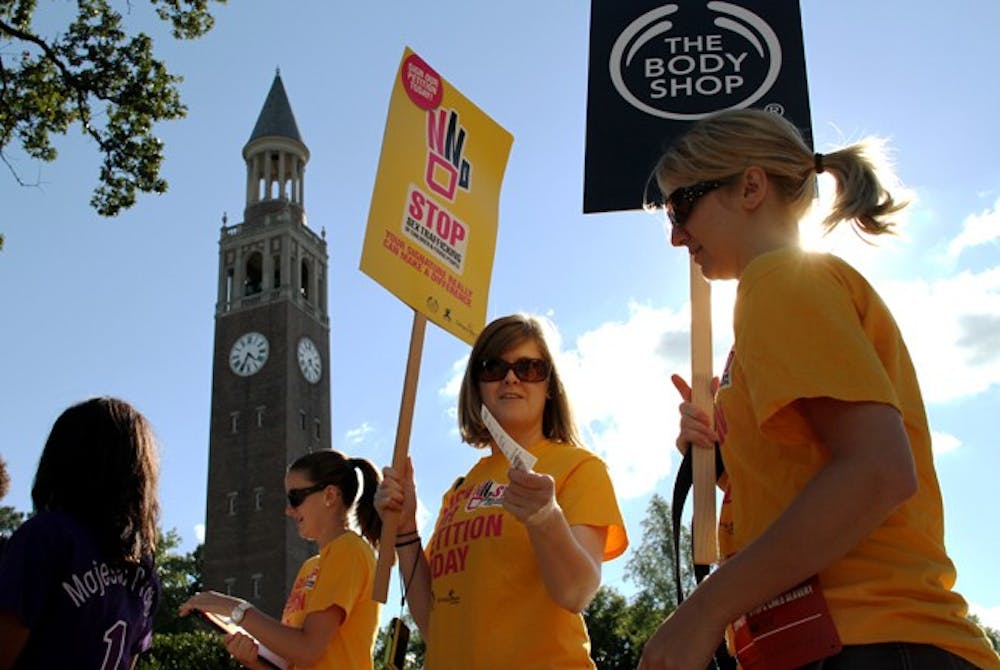The strategy in the fight against child trafficking in the U.S. needs to change.
That was the message from leaders of the organization Stop Child Trafficking Now, who spoke Sunday to a crowd of about 70 in the Forest Theatre.
Ron and Lynette Lewis, the founders of the organization, said they are trying to pursue the individuals who demand underage prostitutes, not the brothels that house them.
“People think there is a slim chance of getting caught, but that is going to change,” Lynette Lewis said.
Those in attendance marched together in the surrounding area to raise awareness for the issue, then reconvened in the theatre for a speech by Ron and Lynette Lewis.
Arielle Cutrara, the Chapel Hill community ambassador for the organization, said going after those who oversee child trafficking organizations won’t single-handedly solve the problem.
“They have found that it is a supply and demand issue,” she said. “As long as there is a demand for it, child trafficking will continue. You can close down any brothel and another will spring up and take its place.”
Ron Lewis said that, as of a few years ago, there were more than 200 groups working on the supply side of the issue and none on the demand side.
But Stop Child Trafficking Now, which has been in operation for three years, is working to change that.



